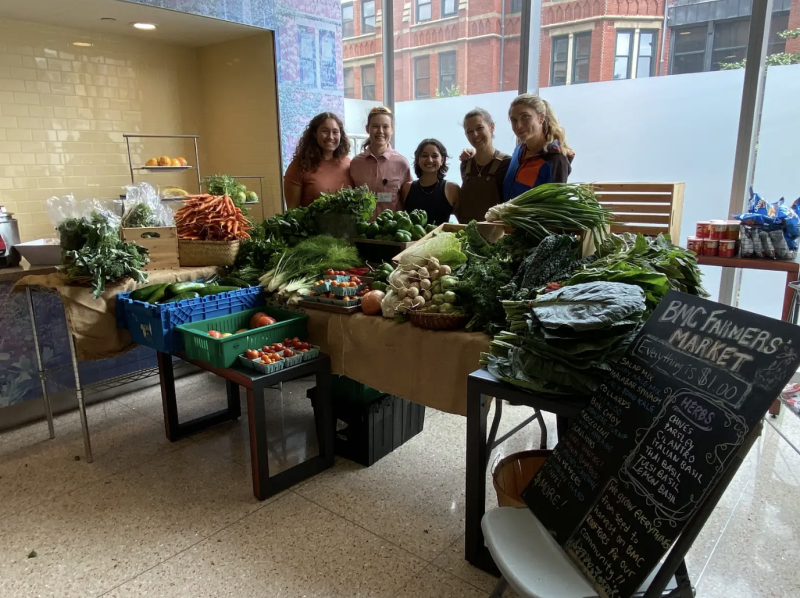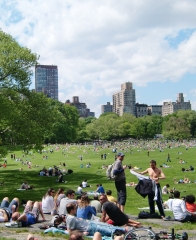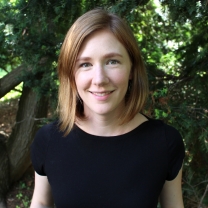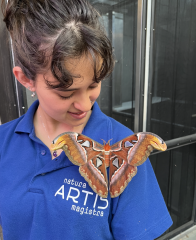 / A Summer of Rooftop Farming in Boston
Subscribe
/ A Summer of Rooftop Farming in Boston
Subscribe

The Rooftop Farms started as part of the hospital’s Nourishing Our Communities initiative, which has at its core the idea that food is medicine. Our small team of five harvested over 500 pounds of produce every week, which went in large part to the hospital's Preventative Food Pantry, a choice-based food pantry that serves over 700 families every month. Our produce also went to the hospital kitchens, a small weekly farmers market held in one of the hospital’s cafe areas, and to Rosie’s Place, a women’s shelter nearby.
Work at the farm included weeding, fertilizing, harvesting, pruning, and a number of miscellaneous tasks for upkeep and maintenance. In addition to the work of farming itself, a large portion of our work was in offering tours and educational programs for a number of different groups ranging from hospital donors to Boston Public School class groups. As an intern, I assisted in giving tours, leading volunteer groups, and running activities for the kids that came to visit. I loved my experience so much, finding as much fulfillment in the manual labor as I did in my personal connections with my colleagues and the many others I encountered through our work.
It was amazing to see how much can be accomplished with relatively little space in an urban setting. One of the two farms is now in its eighth season, and is composed entirely of milk crates with an agricultural liner to prevent soil from spilling out. Its modularity and flexibility are a great educational tool for people to see that you don’t need an expanse of land to cultivate food for yourself and your community. Our other farm is in its first season and has a more traditional raised bed setup. In working at two different farms, I learned so much about crop rotation, optimizing yield based on environmental factors, and the benefits and drawbacks of different systems for urban farming.
As an architecture major with a huge interest in city planning and food justice, I went into this internship hoping to get a sense of what programs for urban food access were able to accomplish within the Boston area and what design considerations might increase urban agriculture in major city centers. I was able to meet a number of people working in this space, and get connected to like-minded organizations. I also gained a sense of how immensely practical and exciting rooftop farming is as a field, and how much more work needs to be done in decreasing institutional and systemic barriers to implementing it more widely. Green roofs are not just a potential food source, but also decrease the urban heat island effect, collect rainwater, lengthen the lifespan of a roof by two to three times its original lifespan, and have been proven to have significant benefits for the mental health of those with access to them.
As an architecture major, this internship has given me so much inspiration to explore possibilities for urban agriculture through design. Landscape architecture is a possible field of interest for me now that I hadn’t really considered much before. I am so excited to bring what I have learned in the past months into my studies, and am so grateful to have had the opportunity to do this work.





